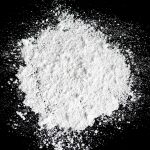Marijuana is a mix of dried leaves, flowers, and other parts of the cannabis plant. As the drug gains legalization across the country, you may wonder about its health effects. In particular, many people debate whether marijuana is addictive.
Is Marijuana Really Addictive?
In general, marijuana is not considered as addictive as drugs like cocaine, heroin, and methamphetamine.
However, regular marijuana use can lead to a condition called marijuana use disorder (also called cannabis use disorder). When left untreated, marijuana use disorder can turn into marijuana addiction.
Marijuana Use Disorder
Marijuana use disorder is characterized by marijuana dependence. That means that, over time, your brain gets used to receiving large amounts of tetrahydrocannabinol (THC). THC is a cannabinoid (compound found in cannabis) that makes you feel “high.” It’s the main psychoactive ingredient in marijuana.
If you’re dependent on marijuana and stop using it, the sudden lack of THC shocks your system.
You may then experience marijuana withdrawal symptoms, such as:
- mood swings
- irritability
- loss of appetite
- trouble sleeping
- cravings for marijuana
According to the National Institute on Drug Abuse (NIDA), about 30% of people who use marijuana develop some level of marijuana use disorder. You face a higher risk of this disorder if you start using the drug before age 18.
Marijuana Addiction
Marijuana addiction is a disease that makes you feel unable to stop using marijuana despite negative consequences (such as damaged relationships or job loss).
Other symptoms may include:
- needing increasingly larger amounts of marijuana to feel the desired effects
- using marijuana in dangerous situations, such as while operating a vehicle
- neglecting relationships and hobbies so you can spend more time using marijuana
- problems with motivation, memory, attention, and learning
Generally, as the drug’s potency (amount of THC) increases, so does the risk of addiction.
Over the past few decades, marijuana has become significantly more potent. In the early 1990s, the drug’s average THC content was under 4%. In 2018, it was 15%. In 2022, you can find strains that have a THC content well over 30%.
Also, many people (especially young people) have started using marijuana concentrates (also called “dabs”), which contain extremely high amounts of THC.
These trends may explain why marijuana addiction seems to be growing more common.
Effects Of Marijuana Addiction
People with marijuana addiction face an increased risk of both short-term and long-term health problems.
Short-Term Effects
When you regularly use large amounts of marijuana, you may experience psychosis.
Psychosis is a temporary loss of connection with reality that causes symptoms such as:
- trouble thinking clearly
- extreme anxiety
- paranoia
- hallucinations
- delusions (holding beliefs that aren’t based in reality)
You’re more likely to experience marijuana-induced psychosis if you’re genetically predisposed to psychosis or if you started using the drug as a teenager or young adult.
Other short-term effects of marijuana addiction may include:
- increased heart rate
- poor judgment
- poor balance and coordination
- trouble sleeping
Long-Term Effects
Long-term health problems associated with marijuana addiction include:
- chronic cough, bronchitis, and other lung problems (from smoking marijuana)
- memory problems
- other substance use disorders, such as alcohol use disorder or opioid use disorder
Also, regular marijuana use can trigger the onset of schizophrenia in people who are genetically predisposed to the disease.
Schizophrenia is a serious mental health condition that affects how you perceive reality. Common symptoms include hallucinations, delusions, loss of interest in activities, and trouble thinking clearly.
Marijuana Addiction Treatment
Most people with marijuana addiction need professional treatment. Some people choose inpatient treatment, which means they live at a treatment center and receive constant supervision.
Other people choose outpatient treatment, which means they live at home while regularly attending a treatment center.
Whether inpatient or outpatient, treatment for marijuana addiction may include services such as:
- medical detox, where health care providers can help you safely stop using marijuana with minimal withdrawal symptoms
- therapy, where a mental health professional can help you cope with triggers (people, places, or other things that make you want to abuse marijuana)
- support groups, where you can share your struggles with other people recovering from marijuana addiction and other types of drug addiction
- psychiatry, where you can receive medications to help treat any mental health concerns that may have contributed to your drug use (such as anxiety or depression)
After professional treatment ends, you can reduce your risk of relapse by practicing self-care.
For example, you should eat nutritious foods, exercise regularly, and try relaxing activities like journaling, yoga, or meditation. You should also spend plenty of time with loved ones who don’t use drugs.
Start Addiction Treatment
To learn more about treatment options for marijuana addiction, please contact Northeast Addictions Treatment Center. We offer personalized, evidence-based care to help you stay sober and healthy.
Sources
Written by
Northeast Addition Editorial Team
©2024 Northeast Addition Center | All Rights Reserved
This page does not provide medical advice.


